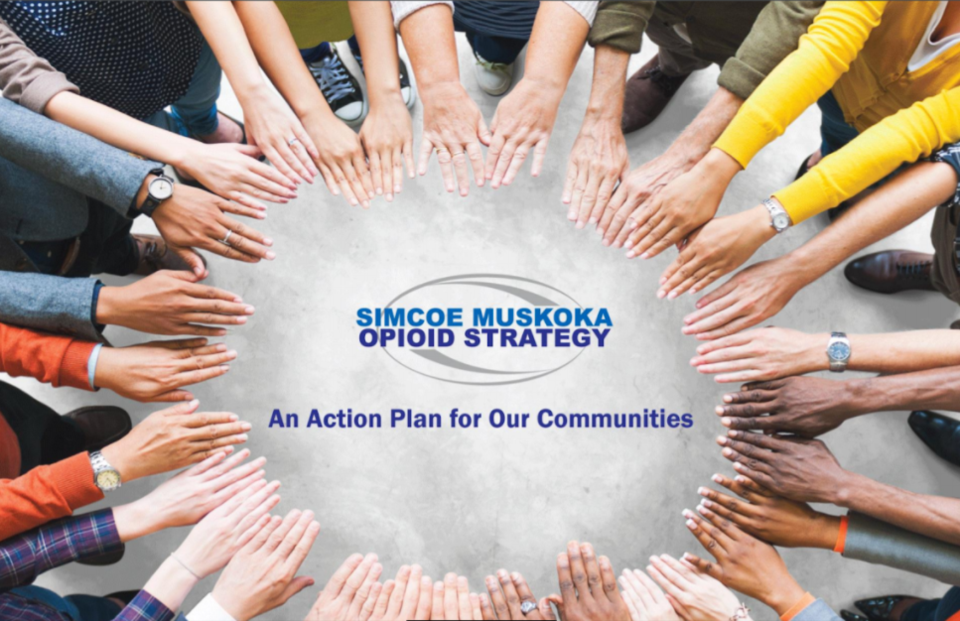Editor's note: The following is Part 2 of a multi-part series OrilliaMatters will be running this week. To read Part 1, click here.
The COVID-19 pandemic has heightened the opioid and overdose crisis and with it comes the community’s multi-pronged response, which includes targeting the distributors and producers.
The Simcoe Muskoka Overdose Strategy (SMOS) was created to address the crisis through a four-pillar drug strategy – prevention, treatment, harm reduction and enforcement – with the addition of emergency management and includes the perspective of those with lived experience of opioid use.
“It’s an all-community response,” including prevention and education pillars, treatment and hospital programs, said Det.-Insp. Jim Walker, deputy director of the OPP Organized Crime Enforcement Bureau, who leads the SMOS enforcement pillar. “It’s all encompassing, it has to be the entire community.”
The intent, he added, is to bring partners together to shine a light on the problem surrounding drug overdoses.
As the issue was developing in 2016-17, Walker could find no standard definition of responses to overdoses or organized data. In 2019, through collaboration with Statistics Canada, the SMOS Statistics Canada Data Project was launched.
The first of its kind, the project is intended to provide an analysis of the local health, justice and social and economic circumstances of overdose deaths and include a provincial perspective.
The data SMOS has so far collected shows the extent of a big problem that continues to worsen.
During the first five months of 2020 when the pandemic started, there were 44 confirmed and probable opioid-related deaths in Simcoe-Muskoka, which is 50 per cent higher than the comparable average for the previous three years.
And it was centred right in Barrie, which was disproportionately impacted by the increase, with 19 or 43 per cent of these deaths, despite accounting for only one-quarter of the Simcoe-Muskoka region's population, according to SMOS's November newsletter.
And SMOS reports that opioid poisoning emergency department visits in Simcoe-Muskoka suggest that visits over the first four months of 2020 were lower than previous years, but deaths were higher.
That brings with it a heightened concern.
“We do know that the isolation that comes with the pandemic can definitely impact on people’s sense of mental health, well-being, substance use” when not as connected to community supports because of the necessary restrictions due to pandemic, Meredith Fryia, team lead of addiction services for the local Canadian Mental Health Association (CMHA) branch, who is also involved in SMOS.
“We’re certainly aware that that number of overdose deaths have increased significantly," Fryia added. “Our community has been dramatically impacted by the opioid crisis and that has been exponentially impacted by COVID.”
The pandemic introduced a new level of stress, leading to an increase in substance use, according to SMOS. Other impacts include the risk of using drugs alone, given distancing requirements, disruption in the substances' supply chain, and poor quality.
There was also concern about decreased availability to some treatment and harm-reduction services in the community.
Fryia said services switched, where possible, to virtual platforms and counselling was being offered through phone and video conferencing as well as in-person when necessary. Group sessions have been conducted over Zoom with outreach to local shelters.
“We’ve been trying to ensure we’re connecting with people where they are in the community as well as letting people know that our services are available in whatever form they require… and ensure people are still getting support,” she said.
From an enforcement perspective, Det.-Insp. Walker says there has been a concerted effort by police locally to track the source of the drugs when someone dies, and target traffickers and producers.
“We’ve had recent successes over the past year or so with joint investigations with Barrie city police. It’s going after those that are trafficking and bringing the substances into the city or to the surrounding areas,” said Walker.
“We also do take the stance that we will investigate every overdose death,” he added. “So if we have toxic drugs in our community, we want to find out. Obviously, we want to hold those accountable, too, if they’re responsible for a death.”
